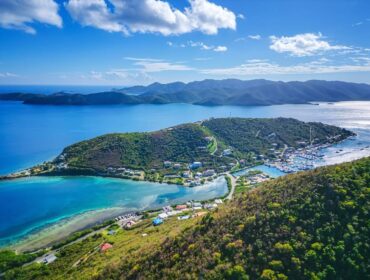A new disaster risk reduction micro-insurance mechanism designed to protect the income of persons most vulnerable to weather related incidents is to be introduced in the Territory.
The Livelihood Protection Policy (LPP) is weather index-based micro-insurance introduced by the Climate Risk Adaptation & Insurance in the Caribbean (CRAIC) project. Persons targeted include fishermen, farmers, taxi operators and other small business owners whose livelihoods were severely impacted by the 2017 disasters.
CRAIC’s representative Mr. Daniel McGree said the LPP should not just be looked at on its own but should be considered as a part of disaster risk reduction programme.
Mr. McGree, “We have this programme established in other Caribbean islands of Grenada, Jamaica and Saint Lucia. The idea is that insurance isn’t a whole solution, it needs to be included as a part of a disaster risk management strategy for the preparation of hurricane seasons. There is a need to give persons a helping hand to recover faster and that’s what this policy tries to address.”
Ms. Tara James another representative of the CRAIC project stated that the LPP provides quick cash payouts after a weather event, enabling policyholders to start rebuilding in the wake of a natural disaster.
“Policies are designed as such that they are fully transparent by using publicly available satellite data and predetermined payout amounts. Persons affected by losses are guaranteed to receive direct payments within 7-14 days of impact and can begin in their recovery process a lot sooner than with traditional insurance,” she added.
The LPP also provides products that use satellite measurements to gather data of local rainfall and wind speeds during periods of heavy rains and storms. The system is set to measure rainfalls and winds in varied parts of the Territory using a grid which allows them to identify when weather conditions have exceeded the normal threshold. Once the threshold is breeched a payout is automatically given to policy holders without filing claims of damage.
As a part of the 4-day meetings, focus group discussions were held on October 25 and 26, to gather information for the development of products specifically tailored for the BVI market. Participants shared their feedback on the mechanism of the policy, many of who were fisherman and farmers affected by the storms last year. A courtesy visit was also paid to the Deputy Premier and Minister of Natural Resources and Labour, Dr. Kedrick Pickering to close out the meeting schedule.
Local Fisherman Mr. Curtis Smith shared his comments on the policy in that it would be a great idea for persons like himself to maintain a livelihood after the effects of a storm.
He said, “Overall, it would benefit us as fishermen once a product is designed to suit us. I could see this working out in the long-run if it is pushed in the right direction. In the event of a disaster this will be a good way for me and my colleagues to maintain an income, this is a positive way forward.”
The Department of Disaster Management and the Ministry of Natural Resources and Labor are forging together to help design a product that is fit for the BVI so that persons can benefit from any future losses.
Editor’s Note: The Caribbean is exposed to a varied number of weather conditions. Tropical storms, hurricanes and floods are the most common. The Climate Risk Adaptation and Insurance in the Caribbean (CRAIC) Project assists in the efforts to increase social resilience through the LPP. The project aims to make this livelihood mechanism affordable and accessible to individuals in the Caribbean, especially those vulnerable to risks of climate changes.





